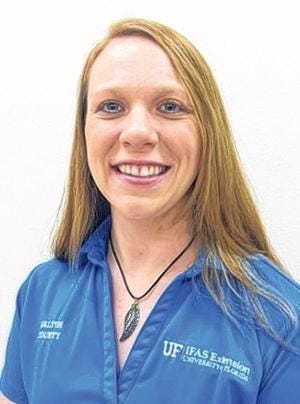CRESTVIEW — Home canning popularity has been rising in the past number of years, but since COVID-19, it has seemed to skyrocket!
People who began gardening and limiting trips to the store had to find a way to preserve their bounty, something our grandparents did many years ago.

Home canning safety
Canning may seem very familiar to us. The glass jars, metal bands, and speckled canner all look the same; they haven’t seemed to change much since our grandparents used them many years ago. What has changed are the developments in the science of food and canning safety.
Today, science is used to research the best methods for canning foods, the cooking time needed to kill harmful microorganisms in food, and the best way to sterilize our equipment.
Science has shown methods used in the past, such as using an oven to heat jars until they seal or open kettle canning. Newer techniques, such as using the dishwasher, microwave, or electric multi-cooker canning, have also been found not to be safe.
In some instances, these canning methods may encourage the growth of microorganisms in canned foods, increasing the risk of foodborne illness, such as botulism.
Foodborne illness symptoms can be severe. For example, the symptoms of botulism include severe cramping, diarrhea, nausea or vomiting, difficulty breathing, muscle weakness, paralysis, and death. In a person with a compromised immune system, a very young child, or an elderly person, these symptoms can be even more dangerous.
For the best, updated information on safe home canning practices, contact your local Family and Consumer Science Extension Agent; visit the National Center for Home Food Preservation website at https://nchfp.uga.edu; and follow the guidelines in the U.S. Department of Agriculture Complete Guide for Home Canning.
This guide can be downloaded for free at https://nchfp.uga.edu/publications/publications_usda.html.
Pepper jelly workshop
If you would like to learn more about home canning, join the extension office's Pepper Jelly Workshop, which is scheduled from 5:30-7:30 p.m. Aug. 3 at 3098 Airport Road, Crestview.
Registration is required and can be completed by visiting https://okaloosacanning2021.eventbrite.com.
The cost is $15 per person; class size is limited.
During this class, you will learn how to prepare home-canned goods using the water-bath canning method and USDA guidelines to prevent foodborne illness.
The best part is you will get to take home a jar of your very own pepper jelly!
For more information about food preservation methods or classes contact Jill Breslawski, Family, and Consumer Science, with the UF/IFAS Okaloosa County Extension at 850-689-5850 or jbreslawski@ufl.edu.

Jill Breslawski is an agent at the University of Florida's Institute of Food and Agricultural Sciences Extension office in Crestview.
This article originally appeared on Crestview News Bulletin: EXTENSION CONNECTION: Learn pepper jelly canning at upcoming workshop
